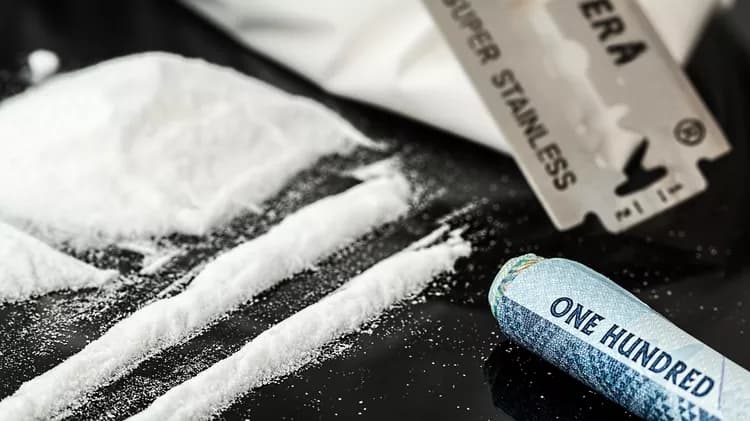
Almost Half Of Those Who Resolve A Drinking Or Drug Problem Do So Without Assistance
A study from the Recovery Research Institute at Massachusetts General Hospital (MGH) has estimated, for the first time, the number of Americans who have overcome serious problems with the use of alcohol or other drugs. More than 9 percent of those responding to their survey of a nationally representative sample of U.S. adults indicated they had previously had such a problem but no longer did, and a little more than half of them reported accomplishing this with some sort of assistance. Only 46 percent of successful respondents considered themselves to be "in recovery."
"The number of people who have overcome serious alcohol and other drug problems and exactly how they have achieved that has been a question of increasing general interest and public health interest," says John Kelly, PhD, director of the Recovery Research Institute in the MGH Department of Psychiatry, who led the study, which has been published online in Drug and Alcohol Dependence. "Understanding how people recover and sustain remission is important from both a policy and a service provision standpoint, and finding that many people can and do resolve significant problems on their own is an important message that we hope can enhance individuals' sense of hope, personal agency and increased confidence in their ability to change."
It has been estimated that as many as 80 million Americans deal with some sort of alcohol and other drug (AOD) use problem -- around 22 million of whom meet the criteria for a full substance use disorder, such as alcoholism or opioid addiction. To identify individuals who believe they've overcome any sort of AOD problem, the researchers surveyed members of the KnowledgePanel of the market research company GfK, a representative sample of 55,000 U.S. adults who are regularly surveyed on a broad variety of topics.
For this study, a group of almost 40,000 KnowledgePanel participants were asked the question "Did you used to have a problem with drugs or alcohol, but no longer do?" More than 25,000 panel members answered the question, and the 2,047 who indicated they had overcome an AOD problem -- 9.1 percent of all those responding -- were sent a link to the full study survey. A few of those either did not respond completely or responded in ways suggesting that they did not truly have an AOD problem, leaving 2,002 responses for analysis.
Almost 54 percent of those who reported resolving an AOD problem used some kind of assistance, most commonly mutual self-help groups like Alcoholics Anonymous or Narcotics Anonymous. Next most commonly used were professional medical treatment -- including the use of anti-craving/anti-relapse medications -- in either inpatient or outpatient settings. About 20 percent used other recovery support services, including sober housing, recovery community centers and faith-based groups. A significant number -- 37 percent -- used two or more types of assistance in combination.
Respondents who indicated receiving assistance to resolve their AOD problem tended to be those who began using substances at a younger age, reported using several substances -- both factors indicative of greater severity -- those who had been diagnosed with substance use disorder or another mental health disorder, or those with a criminal history, particularly having been seen in drug courts. Use of assistance was highest among participants whose primary problem was with opioids and lowest in those primarily using cannabis. Only 46 percent of those who reported resolving an AOD problem considered themselves to be "in recovery."
Kelly explains, "Finding that many people who resolve serious AOD problems do not identify themselves as being in recovery is noteworthy and indicates we may need to change the way we refer to such individuals. Regarding the use of assistance, we've known for a while that most people who meet diagnostic criteria for substance use disorder and remit from their disorder do so without any kind of formal assistance. This study expands those prior findings to people who resolve significant but less serious AOD problems and suggests we may need to broaden our thinking about how people solve these problems without formal help.
"Many clinicians and researchers -- as well as people in the general public -- believe that to overcome a drug or alcohol problem you need to 'go to rehab' or other treatment or attend an organization like AA," Kelly adds. "These findings indicate that, while many of the more severely affected individuals do indeed follow those paths, many do not, indicating a need to broaden our collective cultural mindset. We also have many additional findings from this survey -- covering things like changes in quality of life and well-being in the months and years after resolving significant AOD problems, how people with opioid or cannabis problems differ in clinical characteristics, and recovery pathways from other drugs like alcohol or stimulants -- that will be published in the coming months."
Materials provided by Massachusetts General Hospital. Note: Content may be edited for style and length.
Disclaimer: DoveMed is not responsible for the accuracy of the adapted version of news releases posted to DoveMed by contributing universities and institutions.
References:
John F. Kelly, Brandon Bergman, Bettina B. Hoeppner, Corrie Vilsaint, William L. White. (2017). Prevalence and pathways of recovery from drug and alcohol problems in the United States population: Implications for practice, research, and policy. Drug and Alcohol Dependence. DOI: 10.1016/j.drugalcdep.2017.09.028
Related Articles
Test Your Knowledge
Asked by users
Related Centers
Related Specialties
Related Physicians
Related Procedures
Related Resources
Join DoveHubs
and connect with fellow professionals

0 Comments
Please log in to post a comment.